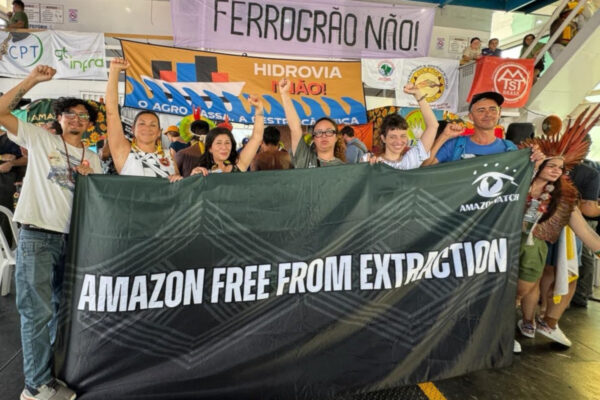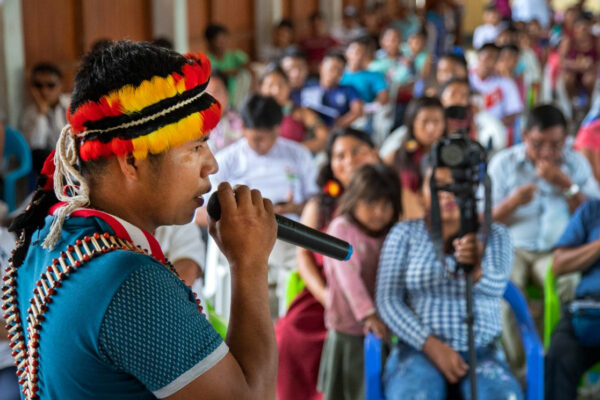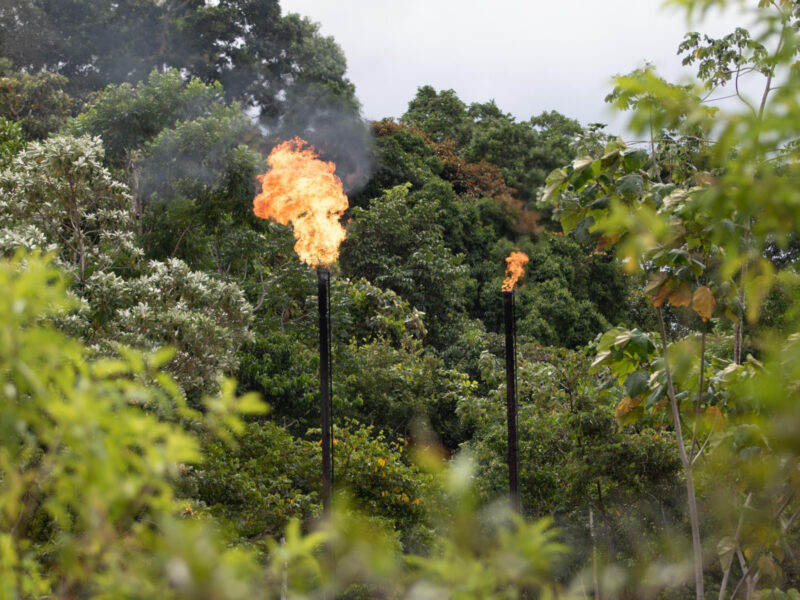After two weeks of deliberations and negotiations, history was made at COP16 in Cali, Colombia. Indigenous peoples, their knowledge, and territories were recognized under Article 8(j), and a subsidiary body was created. The contributions and actions of Afro-descendant communities were also acknowledged, marking an important step toward racial justice within the UN Biodiversity Convention (CBD). This is a historic victory for the people at ‘The People’s COP.’ None of this would have been possible without the presence and persistence of the people and the leadership of Colombia and Brazil.
Colombian Indigenous, Afro-Descendant, campesino, environmentalist, and women-led movements brought energy, dignity, courage, and ambition to the COP, in both the Blue and Green zones.
Together with global civil society and social movements, they demanded a clear pathway to protect global biodiversity, climate stability, and the Amazon Basin:
- The urgent global phase-out of fossil fuels is essential.
- The Amazon and other critical ecosystems must be designated as no-go zones for mining.
- Strengthening Indigenous territorial governance, land rights, and local economies is necessary to counteract transnational criminal economies in the Amazonian region.
- Earth defenders must be protected and supported, as they safeguard our shared future.
- The rights of nature and those of Earth defenders – Indigenous peoples, Afro-descendants, small farmers, and local, riverine, and ocean communities – must be upheld, with their territories and rights protected.
However, it is concerning that the critical role of women, youth, and Earth defenders in protecting biodiversity and climate was overlooked. Given that Colombia is the most dangerous country for Earth defenders, this omission is particularly troubling. Additionally, the failure to address fossil fuel extraction, coupled with the promotion of false solutions like biodiversity credits at side events, is alarming.
Important progress was achieved by frontline communities, such as increasing international awareness on the imminent threats transnational criminal economies pose to global biodiversity. We welcome the interest shown by the Colombian government, UNODC, ACTO, and others in sharing experiences and building initiatives to address this issue. Enhanced regional cooperation and international collaboration is essential to implement regional mechanisms that control the proliferation of illicit markets and protect human rights, Indigenous rights, and the rights of nature.
Regrettably, conversations did not consider crucial topics such as the catastrophic impacts of illicit economies on regional and global biodiversity loss, the harmful effects of mercury contamination on human and ecological health, or interrelated human rights issues, such as the displacement of Indigenous communities and compromised state territorial governance in the Amazonian region from armed groups.
It was also surprising that the Peace with Nature Coalition declaration, launched by coalition President Petro during the conference, did not address the impact of oil and gas extraction and mining activities on biodiversity. These industries must be held accountable and careful oversight of energy transition projects are critical to protect the planet’s biodiversity and its greatest guardians.
We acknowledge and commend the efforts of countries like Brazil and the negotiation led by its Ministry of Indigenous Peoples in advocating for the creation of a subsidiary body to implement Article 8(j) and negotiating with opposing countries. However, we regret that within the Article 8j work program negotiations, several gains made in previous dialogues on gender and human rights defenders have been sacrificed. These issues remain contentious for several countries, blocking progress on committed actions to protect defenders.
We are concerned about the mention of carbon credits and biodiversity credits as financing tools for conservation goals, given that existing evidence shows it is not possible to offset biodiversity damage through these mechanisms.
In light of the biodiversity and climate crises we are facing, we will continue to unite in pursuit of true peace with nature and climate justice as we look ahead to COP30 in Brazil in 2025.












